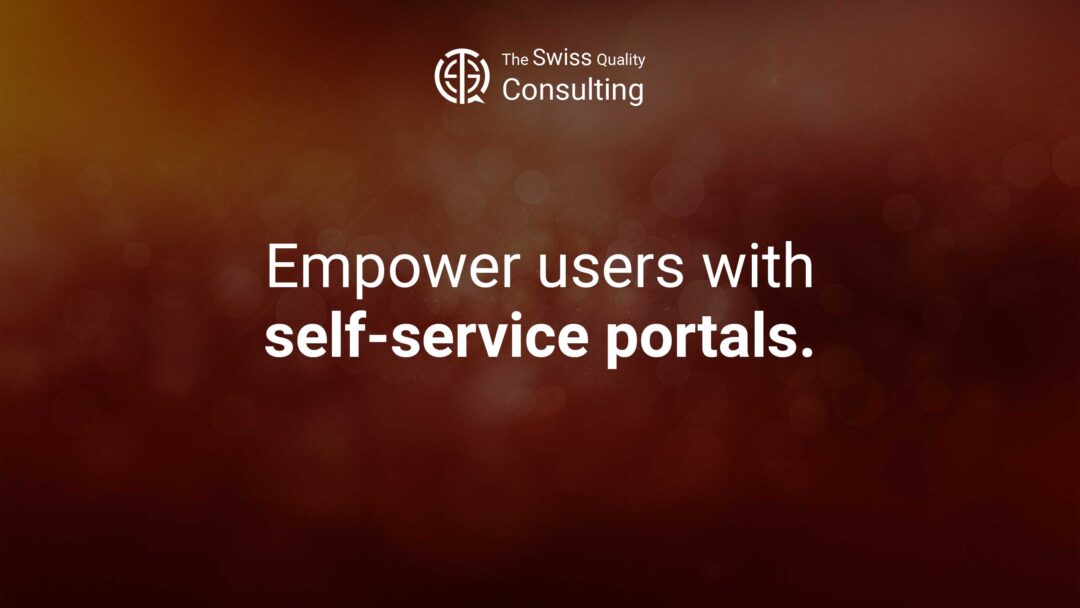Revolutionizing Customer Experience through Self-Service Portals: Empowering Users with Self-Service Portals
Introduction
In the digital age, empowering users with self-service portals has become a crucial strategy for businesses aiming to enhance efficiency and improve customer satisfaction. This article aims to provide business executives, mid-level managers, and entrepreneurs with insights into the benefits of implementing self-service portals and how they can transform customer interactions.
The Importance of Self-Service in Today’s Business Environment
In today’s fast-paced and demanding digital world, self-service portals have emerged as transformative tools, empowering users to take control of their interactions and experiences with businesses. These digital gateways provide a centralized hub where users can access a wealth of information, services, and support resources, enabling them to resolve queries, perform tasks, and manage their accounts without the need for direct interaction with customer service representatives. This shift towards self-service not only empowers users and enhances their overall experience but also significantly reduces the burden on business resources, allowing customer service teams to focus on more complex and value-added interactions.
Traditional customer service models often relied on a reactive approach, with users waiting in queues or navigating through automated menus to reach a live agent. Self-service portals, on the other hand, offer a proactive and empowering experience, placing users in control of their interactions. Users can access comprehensive knowledge bases, FAQs, and troubleshooting guides to find answers to their questions independently. They can also perform routine tasks, such as updating account information, managing subscriptions, or tracking orders, without the need for assistance.
The benefits of self-service portals extend beyond user convenience; they foster a culture of self-reliance and reduce the strain on business resources. By providing users with the tools and resources they need to resolve their own issues, self-service portals significantly reduce the number of inquiries reaching customer service teams. This frees up valuable time for agents to focus on more complex issues, providing personalized support and handling escalated cases that require human intervention.
Moreover, self-service portals provide businesses with valuable data and insights into customer needs and preferences. By analyzing usage patterns and user feedback, organizations can identify areas for improvement and optimize their self-service offerings, ensuring they are meeting the evolving needs of their customers. This data-driven approach enables businesses to continuously refine their self-service portals, enhancing user satisfaction and further reducing the burden on customer service teams.
In essence, self-service portals represent a paradigm shift in customer service, empowering users to take control of their interactions and enabling businesses to operate more efficiently. By embracing self-service, organizations can enhance customer satisfaction, reduce costs, and position themselves for sustainable growth in a world where convenience, autonomy, and digital engagement are the hallmarks of successful customer relationships.
Boosting User Independence and Satisfaction
By providing users with the tools to manage their interactions, businesses can boost user independence, leading to increased satisfaction and loyalty.
Role in Change Management
Incorporating self-service portals is a significant part of change management. As businesses evolve with technological advancements, adopting self-service options can streamline operations and adapt to changing consumer expectations.
Facilitating Smooth Transitions
Effective change management ensures a smooth transition to digital platforms, allowing businesses to quickly reap the benefits of self-service capabilities.
Impact on Executive Coaching and Leadership
Leadership is key in successfully implementing self-service portals. Executive coaching services often focus on training leaders to understand and champion digital transformation initiatives that empower users.
Guiding Teams through Digital Transformation
Through executive coaching, leaders are equipped with the skills to guide their teams in implementing and optimizing self-service portals, ensuring that digital strategies align with business goals.
Effective Communication in Implementing Self-Service Portals
Communicating the availability and benefits of self-service portals to users is crucial for successful implementation. Clear, user-friendly instructions and support can encourage user adoption and maximize the benefits of self-service features.
Enhancing User Engagement and Adoption
Effective communication strategies can significantly enhance user engagement with self-service portals, driving higher adoption rates and user satisfaction.
Generative AI in Personalizing Self-Service Experiences
Generative Artificial Intelligence (AI) plays a significant role in personalizing the self-service experience. AI can analyze user data to provide tailored information, recommendations, and support, enhancing the user experience.
AI-Driven Customization for User Convenience
Generative AI provides personalized experiences in self-service portals, making them more intuitive and user-friendly, thereby increasing their effectiveness and user satisfaction.
Conclusion
In conclusion, empowering users with self-service portals is a strategic approach that can significantly enhance business efficiency and customer satisfaction. By embracing this digital transformation, businesses can provide their users with the autonomy they desire while streamlining their operations.
#SelfServicePortals, #UserEmpowerment, #BusinessEfficiency, #DigitalTransformation, #AIinBusiness

